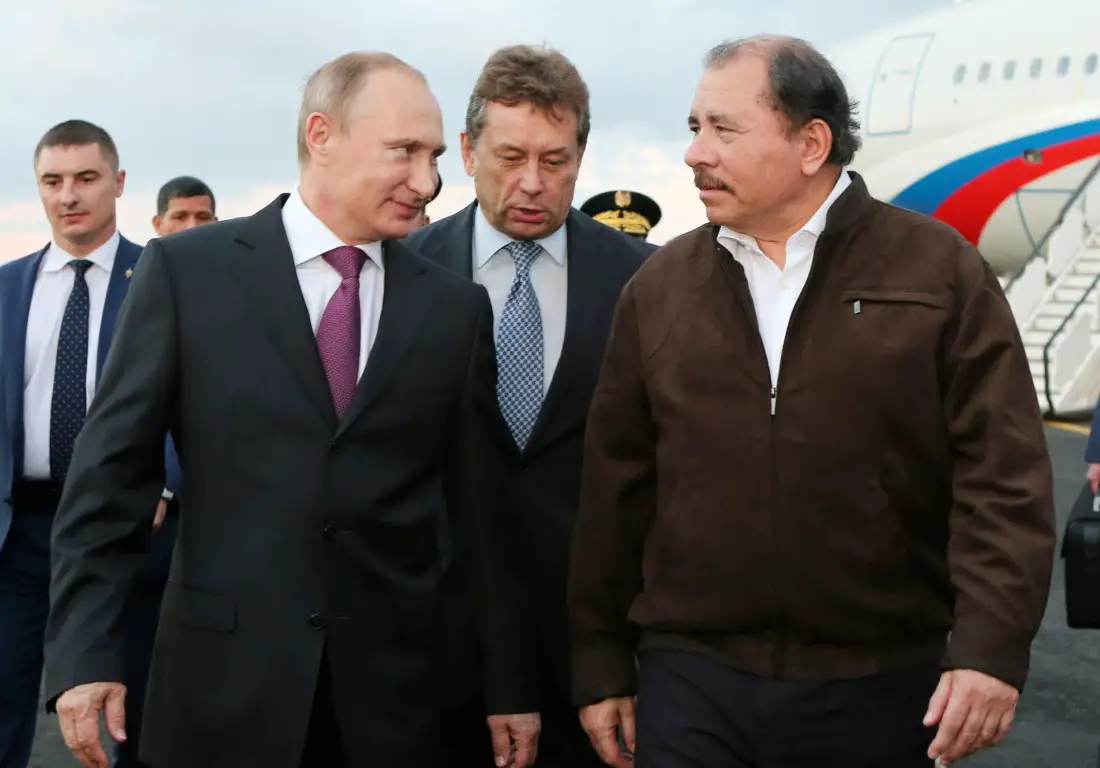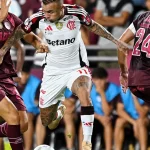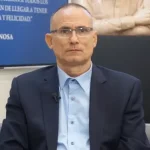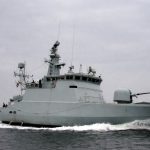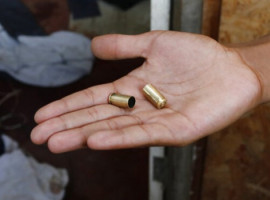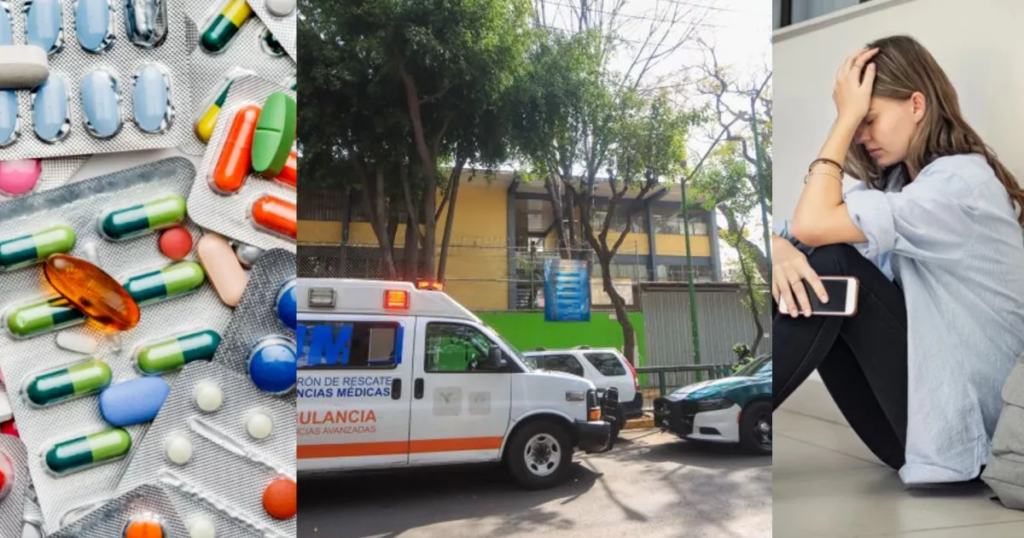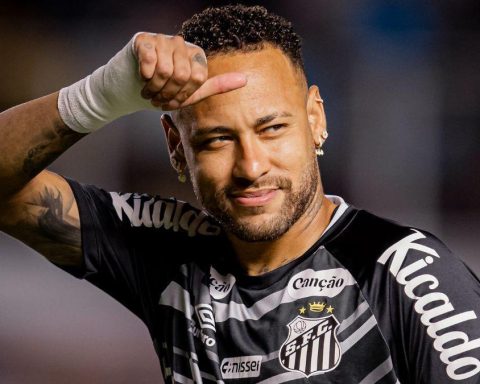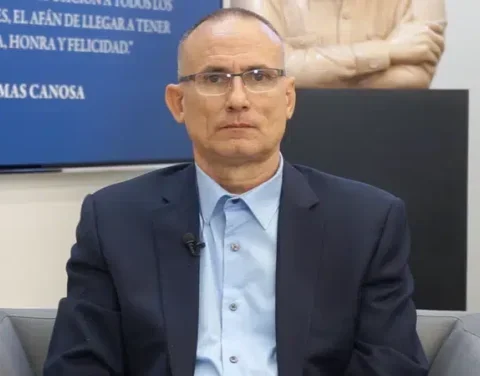When state repression bloodied Nicaragua with 355 murders and more than 2,000 injuries in 2018, placing the country in one of the most serious human rights crises in Latin America, the Daniel Ortega regime received training to strengthen its repressive capabilities from the Federation Russia, which had already had “an active role in national cyber intelligence.”
The person in charge of making it possible was Colonel Oleg Surov, director of the Russian police training center installed in Managua to train Central American officers, according to the Report “Dangerous Alliances: Russia’s Advance in Latin America”, Prepared in December 2022 by Douglas Farah and Marianne Richardson for the Institute for National Strategic Studies at the National Defense University.
“Our sources with direct knowledge of the events said that when protests against the Ortegaists broke out in 2018, Surov was tasked with providing special training to a select group of Nicaraguan police officers, in classes titled `Modern Means and Methods to Combat Extremism and Terrorism`”, the authors stated.
Farah and Richardson are consultants on national security issues in the United States for the firm IBI Consultants. Farah covered Latin America as a journalist for the Washington Post in the 1990s and has investigated as a consultant the money trail of the Revolutionary Armed Forces of Colombia (FARC), or the businesses of Venezuela; news that has been highlighted both in the US and Latin American press.
According to the same sources, Surov operates outside the normal chain of command of the Russian Embassy, reporting directly to Moscow, instead of reporting to the ambassador or accredited military chief in Nicaragua.
The objective, in addition to specializing the Nicaraguan regime in these areas, is also the creation of a cadre of intelligence agents familiar with and loyal to Russia, who can operate in the country and throughout the Central American region.
The role assigned to Colonel Surov
Surov would be the delegate to also choose the “growing number of Nicaraguan officers” who travel to Russia for training as well. In 2022, the authors said that some 150 police officers were trained in that country.
The closeness with Putin is such that on December 20 of last year Ortega praised his new deputy director of investigations at the national level in the Police, Commissioner General Zhukov Serrano Pérez, and mentioned as his main merit that he had graduated from the Russian Federation. He comes from the intelligence area where he has worked in the shadows since before the 2018 crisis.
The tyrant also praised its repressive domemade up of a small group of officials, the main ones sanctioned by the international community precisely for violations of human rights such as the General Commissioner Ramón Avellándeputy director general and designated as the executor of the “cleaning operation” as the violent clearing of the barricades was known, carried out by the authorities with blood and fire.
While Ortega showed his pride in the repression and his relationship with Russia, internally he strengthened counterintelligence with a series of changes and appointments in order to detect possible deserters who could tell abroad how the system works. He thus led the repression against state workers, some of whom the prosecutors accused by the law of cybercrime.
Everything that happens on the web is the object of interest of the ruling family. In March 2018, Rosario Murillo spoke out in favor of regulating social networks, since she considered that Nicaraguans were being “negatively influenced.”
“Digital and technological surveillance”
In absolute secrecy, the regime gave way to the police training of which the study speaks. Almost five years ago, Russia provided the aforementioned police officers with “digital and technological surveillance” techniques that, according to the Report, improved the capacity of the Nicaraguan regime to “repress and control civil society.”
As part of the follow-up to that initial training, three years later, 20 officers also attended another one on “the fight against computer crimes”, given by the Russian Interior Ministry, specifically focused on surveillance techniques.
“Since then, Ortega’s main enforcer and national security adviser, Néstor Moncada Lau, who was sanctioned by the United States government for violently repressing protests in 2018, established a new permanent structure within the Nicaraguan National Police to carry out intelligence and surveillance activities with Russian advisers”, reveals the investigation.
This surveillance center would be located on the second floor of the Telecommunications and Postal Institute (Telcor) building, the state regulatory body for this sector, but beyond the site they highlighted the strategic importance it played in the repressive context of that time.
“Russian training and technology were instrumental in allowing the Ortega regime to identify, imprison, or execute student leaders through cell phone tracking on WhatsApp and other encrypted apps in the protest movement in 2018,” they concluded.
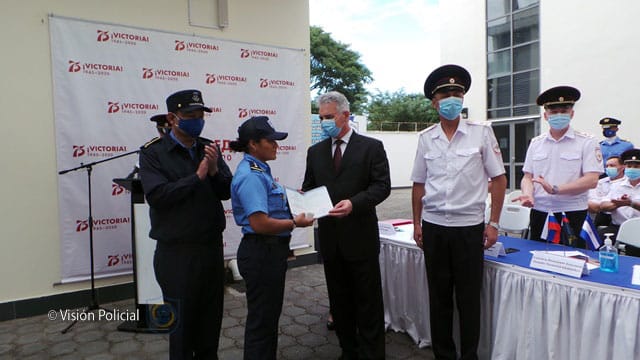
bloc of allies of Russia
Nicaragua is part of a group of countries made up of Venezuela and Cuba, whom they identify as Russia’s “main allies” in Latin America. They are characterized by having a populist discourse, but also by persecuting opponents, abolishing judicial independence and restricting press freedom.
According to the Report, the Federation seeks to strengthen ties with those countries geographically close to the United States to expand its geopolitical influence. That has not gone unnoticed in that country, despite the fact that 31 years have passed since the end of the Cold War.
At the beginning of February of last year, the then Russian ambassador in Managua said that it is a small group of his fellow citizens who remain in the country without specifying the number. He assured, according to the report published by the news agency Sputnik, that Russian cooperation “does not target third countries”.
Farah and Richardson’s investigation cites a statement from Southern Command that shows how the United States views Moscow. For the Americans, Russia continues to destabilize and they explained that the relationship with political allies such as Nicaragua allows the Federation “air and maritime access to project its power in the region.”
Details about local ties with Russia are handled as state secrets by Ortega and the military establishment. “Russia’s main activities in Nicaragua—its permanent military presence, cyber activities, and growing training programs for both the Army and the Police—are carried out mainly in the shadows,” they point out.
However, the Report says that Nicaragua allows the permanent presence of 250 Russian soldiers in national territory, there is a satellite station named La Gaviota, located in the vicinity of Nejapa, and which in the past has been designated as an espionage center. . Since 2017, the Nicaraguan authorities have denied the existence of these intentions.
It is also important to strengthen local cyber, intelligence and cryptographic capabilities. “These interventions touch multiple points of strategic interest to Russia and, as discussed below, through the GLONASS project (“The Seagull”) and other activities, they may be part of the implementation of the establishment of the ‘Sovereign Internet’ project itself. of Russia, promulgated by Putin in November 2019,” they added.
In terms of “computer security”, as pointed out by CONFIDENTIAL In a report published at the end of February 2022, Ortega surrendered to the interests of Russia, putting aside his “anti-imperialist” discourse.
Ortega attacks the United States, the European Union and Canada because they demand the release of political prisoners, justice for the victims of repression and the immediate return to democracy on behalf of Nicaragua.
In the opposite direction, the dictator chose to get closer to Russia, China and Irana club of nations that are similar in their anti-imperialist rhetoric, in their anti-human rights practices and in another no minor detail: they have not contributed donations to the Nicaraguan budget between 2018 and 2023, according to an investigation published by CONFIDENTIAL.
Russia’s military cooperation with Nicaragua, or the donations of wheat and buses are not recorded in the budget.
In 2021, Russia and Nicaragua signed an agreement, which defines a series of threats to “international information security” as “acts against the sovereignty, security and territorial integrity of States.”
The Report also points to “illegal access to computerized information, interference in internal affairs” and another topic to complete the repressive script: “dissemination of information that inflicts damage on the sociopolitical system and socioeconomic system, as well as the spiritual, moral and cultural environment of others.” State”.
The Ortega regime approved in 2020 a special cybercrime law to punish “false news”, which provided a legal framework for the persecution carried out against presidential candidates, members of civil society, businessmen and politicians in the 2021 presidential elections.
As the country sank into repression, Ortega was re-elected in a process without democratic guaranteesquestioned by the Organization of American States (OAS), except for a group of countries that recognized the prolongation of the dictatorship, including Russia in the front row.
Farah and Richardson’s analysis recalls that the Mechnikov Latin American Institute of Biotechnology is located in Nicaragua, which had a million-dollar investment from Russia and the Nicaraguan Social Security, was inaugurated in 2017, but did not produce vaccines as promised at the time by its main representatives.
This laboratory since March 2020 has been working on the production of the drug Interferon Alfa-2B against Covid-19, they report. From an economic point of view, the links appear to be modest.
“From January 2020 to September 2021, Nicaragua registered USD 17.2 million in exports to Russia and USD 126 million in imports from Russia. Many bulk imports and exports do not have an identifying description (they are labeled “N/A” or “other”), but still provide important insight into the economic relationship of countries and the opacity of that relationship. read in the report.
Although Putin has been warm to Ortega, congratulating him in the past on his “electoral victories,” the Nicaraguan dictator is often more vocal. On October 6, 2022, when the President of the Russian Federation turned 70, he received this message from Managua: “We are with you contributing our support from the valuable and historic relationship that unites us, and fighting with energy and optimism, for that better multipolar world”. He was the Central American dictator
